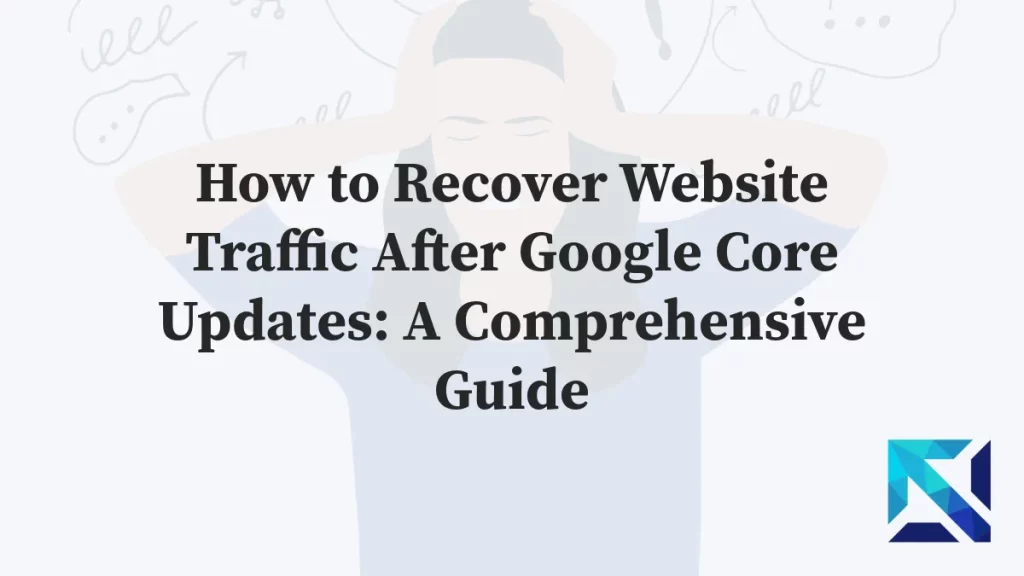In the digital marketing world, understanding your competition is key. This is especially true when it comes to SEO. Competitor keyword research is a crucial part of any successful SEO strategy. It helps you understand what keywords your competitors are ranking for, and how you can leverage this information to improve your own rankings.

In this guide, we will walk you through the process of conducting effective competitor keyword research. We’ll cover everything from identifying your true competitors to choosing the right tools for your research.
Whether you’re an SEO professional or a business owner looking to enhance your online presence, this guide will provide you with the insights you need.
Let’s dive in and explore the world of competitor keyword research.
How to do competitor SEO research?
Competitor keyword research is a strategic process. It involves identifying and analyzing the keywords that your competitors are targeting in their SEO efforts.
This research provides valuable insights. It helps you understand which keywords are driving traffic to your competitors’ websites.

The goal is not to copy your competitors’ strategies. Instead, it’s about learning from their successes and failures. This knowledge can inform your own SEO strategy, helping you make more informed decisions about which keywords to target.
Here are some key reasons why competitor keyword research is important:
- It helps you identify high-performing keywords that you might not have considered.
- It provides insights into the SEO strategies of successful businesses in your industry.
- It allows you to spot gaps in your own keyword strategy and make necessary adjustments.
Why Competitor Keyword Research Matters
Competitor keyword research is not just about keeping up with the competition. It’s about staying ahead.
By understanding what keywords your competitors are targeting, you can identify opportunities for your own business. You can find keywords that are relevant to your business but are not yet being fully exploited by your competitors.
This can give you a competitive edge in the search engine rankings.
Defining Your True Competitors
In the digital space, your competitors are not just the businesses that offer similar products or services. They are any websites that rank highly for the keywords relevant to your business.
This could include industry blogs, forums, and review sites, among others.
Identifying your true competitors is the first step in effective competitor keyword research.
Steps to Conduct Competitor Keyword Research
Competitor keyword research is a systematic process. It involves several steps, each of which provides valuable insights.
The first step is to identify your competitors. These are the websites that rank highly for your target keywords.
Next, you need to analyze their keyword strategies. This involves identifying the keywords they are targeting and how they are using them in their content.
Finally, you need to analyze the keyword gap. This is the difference between the keywords you are targeting and the ones your competitors are targeting.
Initial Competitor Analysis
The first step in competitor keyword research is to identify your competitors. This involves analyzing the websites that rank highly for your target keywords.
You can use SEO tools to identify these websites. These tools can provide a list of websites that rank highly for your target keywords.
Once you have identified your competitors, you can start analyzing their keyword strategies.
Identifying Competitor Keywords
The next step is to identify the keywords your competitors are targeting. You can do this by analyzing their website content and meta tags.
SEO tools can also help with this. They can provide a list of keywords that a website is ranking for.
This step can provide valuable insights into the keywords that are driving traffic to your competitors’ websites.
Analyzing the Keyword Gap
The keyword gap is the difference between the keywords you are targeting and the ones your competitors are targeting. Analyzing this gap can provide valuable insights.
It can help you identify keywords that you might not have considered. It can also help you spot opportunities to improve your keyword strategy.
Analyzing the keyword gap is a crucial step in competitor keyword research.
Informing Your Content Strategy
The insights gained from competitor keyword research can inform your content strategy. They can help you decide which keywords to target in your content.
This can help you create content that is more likely to rank highly in search engine results. It can also help you create content that is more relevant to your target audience.
Competitor keyword research is a valuable tool for content creation.
Tools for Competitor Keyword Research
There are many tools available for competitor keyword research. These tools can provide valuable insights into your competitors’ keyword strategies.

Some tools can provide a list of keywords that a website is ranking for. Others can provide information on the keyword gap between you and your competitors.
There are both free and paid tools available. The choice between these depends on your needs and budget.
Free tools can provide basic information on competitor keywords. Paid tools, on the other hand, offer more advanced features.
Choosing the right tool is crucial for effective competitor keyword research.
Overview of Top Competitor Keyword Research Tools
There are many competitor keyword research tools available. Some of the top ones include SEMrush, Ahrefs, and Moz.
SEMrush offers a comprehensive suite of SEO tools. This includes a competitor keyword research tool that provides detailed information on competitor keywords.
Ahrefs is another popular SEO tool. It offers a keyword explorer that can provide information on the keywords your competitors are ranking for.
Moz offers a keyword explorer as well. This tool can provide information on the keyword gap between you and your competitors.
Other notable tools include SpyFu and Keyword Spy. These tools specialize in competitor keyword research.
Each of these tools has its strengths and weaknesses. The choice between them depends on your specific needs.
Free vs. Paid Tools: Making the Right Choice
The choice between free and paid competitor keyword research tools depends on your needs and budget. Free tools can provide basic information on competitor keywords.
However, they often lack the advanced features offered by paid tools. These features can provide more detailed and accurate information on competitor keywords.
Paid tools also often offer better customer support. This can be helpful if you encounter any issues.
However, paid tools can be expensive. It’s important to consider whether the additional features are worth the cost.
Tips for Using Competitor Keyword Research Tools
Competitor keyword research tools can provide valuable insights. However, it’s important to use them effectively.
First, it’s important to understand the data these tools provide. This includes understanding the meaning of different metrics.
Next, it’s important to analyze this data in the context of your own website and goals. This can help you make informed decisions.
Finally, it’s important to use these tools as part of a broader SEO strategy. Competitor keyword research is just one aspect of SEO.
Using competitor keyword research tools effectively can help you improve your SEO strategy.
What is the best keyword research tool?
Free Keyword Research Tools
Google Keyword Planner: (Free, part of Google Ads): A good starting point, offering basic keyword search volume data and related keyword suggestions. However, limited functionality compared to paid options.
Moz Keyword Explorer: (Free limited plan, Paid plans available): Offers limited free searches with basic metrics like search volume and keyword difficulty. Paid plans unlock more features and data.
Ahrefs Keyword Generator: (Free limited plan, Paid plans available): Provides keyword suggestions and estimates search volume but with limited data compared to paid plans.
Paid Options
SEMrush: (Paid plans): A powerful all-in-one SEO tool offering comprehensive keyword research features, including search volume, keyword difficulty, competitor analysis, and organic traffic insights.
Ahrefs: (Paid plans): Another comprehensive SEO toolkit with advanced keyword research capabilities, including competitor keyword research, backlink analysis, and content gap analysis.
Keywordtool.io: (Paid plans): Offers a user-friendly interface with a focus on long-tail keyword suggestions and search intent analysis.
Choosing the Right Tool:
Beginner: If you’re just starting out, a free option like Google Keyword Planner or the free plans of Moz or Ahrefs might be sufficient.
Serious SEO: For advanced keyword research and SEO analysis, consider paid tools like SEMrush or Ahrefs.
Specific Needs: Some tools excel in specific areas. Keywordtool.io might be a good choice if you prioritize long-tail keywords, while SEMrush offers a wider range of SEO features.
Additional Tips:
Combine Tools: Don’t rely on a single tool. Combine free and paid options depending on your needs.
Focus on Relevance: Prioritize keywords relevant to your target audience and content, not just high search volume.
Long-Tail Keywords: Consider including long-tail keywords with lower competition for better targeting.
Track Performance: Monitor your keyword rankings and adjust your strategy based on results.
Leveraging Competitor Insights
Competitor insights can provide valuable information for your SEO strategy. They can help you understand what keywords your competitors are targeting.
This information can help you identify opportunities for your own website. For example, you might find keywords that your competitors are ranking for, but you are not.
These could be potential opportunities for you to target. However, it’s important to consider the relevance and difficulty of these keywords.
Competitor insights can also help you understand the content strategies of your competitors. This can provide ideas for your own content creation.
Prioritizing Keywords and Content Creation
Once you have identified potential keywords, it’s important to prioritize them. Not all keywords are equally valuable.
Some keywords might have a high search volume, but also high competition. Others might have a lower search volume, but also lower competition.
It’s important to consider both these factors when prioritizing keywords. You should also consider the relevance of the keywords to your website.
Once you have prioritized your keywords, you can start creating content. The content should be relevant and valuable to your audience.
It should also be optimized for the keywords you are targeting. This can help improve your search engine rankings.
Adapting SEO Strategy Based on Insights
Competitor insights can help you adapt your SEO strategy. For example, you might find that your competitors are targeting long-tail keywords.
This could be a strategy that you could also adopt. Alternatively, you might find that your competitors are focusing on a specific type of content.
This could provide ideas for your own content creation. However, it’s important to adapt these strategies to your own website and audience.
You should also monitor your competitors on an ongoing basis. This can help you stay up-to-date with their strategies and adapt your own strategy accordingly.
Ethical Considerations and Best Practices
Competitor keyword research should be conducted ethically. It’s important to respect the privacy and intellectual property of your competitors.
You should only use publicly available information for your research. You should also avoid any practices that could harm your competitors.
Finally, it’s important to use competitor insights as a guide, not a blueprint. You should adapt these insights to your own website and audience. This can help you create a unique and effective SEO strategy.
Measuring Success and Ongoing Optimization
Measuring the success of your competitor’s keyword research is crucial. It helps you understand if your efforts are paying off.
One way to measure success is by tracking your search engine rankings. If your rankings improve after targeting new keywords, this could indicate success.
However, it’s important to consider other factors as well. For example, an increase in website traffic or conversions could also indicate success.
Remember, SEO is a long-term strategy. It might take some time before you see results.
Tracking and Adapting to Competitor Moves
Keeping an eye on your competitors is an ongoing task. They might change their strategies over time.
For example, they might start targeting new keywords. Or they might create new types of content.
You should adapt your strategy based on these changes. This can help you stay competitive in the digital space.
Case Studies and Examples
Let’s look at some examples. Company A noticed that their competitor was ranking for a specific keyword.
They created content around this keyword. After a few months, they saw an increase in their search engine rankings.
Company B noticed that their competitor was focusing on video content. They started creating their own videos. This led to an increase in website traffic.
These examples show how competitor insights can inform your SEO strategy. However, remember that what works for one company might not work for another.
Common Mistakes to Avoid
There are some common mistakes to avoid in competitor keyword research. One mistake is focusing only on high-volume keywords.
These keywords might have high competition. It might be more effective to target long-tail keywords with lower competition.
Another mistake is copying your competitors’ strategies. It’s important to adapt these strategies to your own website and audience.
Finally, avoid neglecting other aspects of SEO. While keywords are important, other factors like backlinks and user experience also play a role in search engine rankings.
Ultimate 2024 Competitor Keyword Research Checklist
1. Define Your Goals and Target Audience
Clearly outline your objectives: Increased organic traffic, lead generation, sales, or brand awareness.
Identify your target audience’s demographics, interests, and pain points.
2. Brainstorm Seed Keywords
Create a list of relevant keywords and phrases related to your business, products, or services.
Consider synonyms, variations, and misspellings.
3. Utilize Keyword Research Tools
Employ tools like Google Keyword Planner, Ahrefs, SEMrush, or Moz to expand your keyword list.
Analyze search volume, competition, and keyword difficulty.
Explore related keywords and search suggestions.
4. Competitor Analysis
Identify your top competitors in the industry.
Analyze their website content, keyword usage, and search engine rankings.
Use tools to uncover their top-performing keywords.
Identify keyword gaps where you can outrank competitors.
5. Search Intent Analysis
Understand the intent behind search queries (informational, navigational, transactional).
Create content that aligns with user intent.
6. Keyword Clustering
Group related keywords into thematic clusters for efficient content creation.
7. Keyword Optimization
Incorporate target keywords naturally into titles, headings, meta descriptions, and content.
Optimize image alt text and file names.
Ensure proper keyword density and distribution.
8. Local SEO (if applicable)
Research location-specific keywords and phrases.
Optimize for local search engines and directories.
9. Track and Analyze
Monitor keyword rankings and website performance.
Make data-driven adjustments to your keyword strategy.
10. Stay Updated
Keep up with search engine algorithm updates and industry trends.
Regularly review and refine your keyword research efforts.
Conclusion
Competitor keyword research is a vital part of SEO. It can provide valuable insights to inform your content strategy.
However, it’s important to remember that SEO is a long-term game. It might take some time before you see results.
Also, while competitor insights are valuable, they should not be the only factor guiding your strategy. It’s important to understand your audience and create content that meets their needs.
Future Trends in Competitor Keyword Research
The field of competitor keyword research is constantly evolving. New tools and techniques are being developed all the time.
For example, AI and machine learning are becoming more prevalent in SEO tools. These technologies can provide more accurate and detailed insights.
Voice search is another growing trend. As more people use voice assistants, it’s important to consider how this affects keyword strategies. Understanding these trends can help you stay ahead in the competitive digital space.
Can you use competitors as keywords?
Yes, you can use competitors as keywords.
However, it's generally more effective to target keywords related to your competitors' services or industries rather than their brand names directly.
Are high competition keywords good?
High competition keywords are often difficult to rank for, especially for new websites. It's generally better to focus on a mix of high and low competition keywords.
is it good to bid on competitor keywords?
Bidding on competitor keywords can be effective, but it's often expensive and risky. It can lead to higher costs per click and potential retaliation from competitors.
Consider these factors:
Budget: Can you afford the higher costs?
Competition: How competitive are the keywords?
Target audience: Are you likely to convert these users?
Often, focusing on your own branded keywords and relevant industry terms can be more cost-effective and yield better results.
How often should I update my competitor keyword research?
Regular updates, at least quarterly, are recommended to stay ahead of competitors and algorithm changes.
Can I use competitor keyword research for local SEO?
Absolutely! Local SEO benefits greatly from competitor keyword research to identify location-specific terms.





